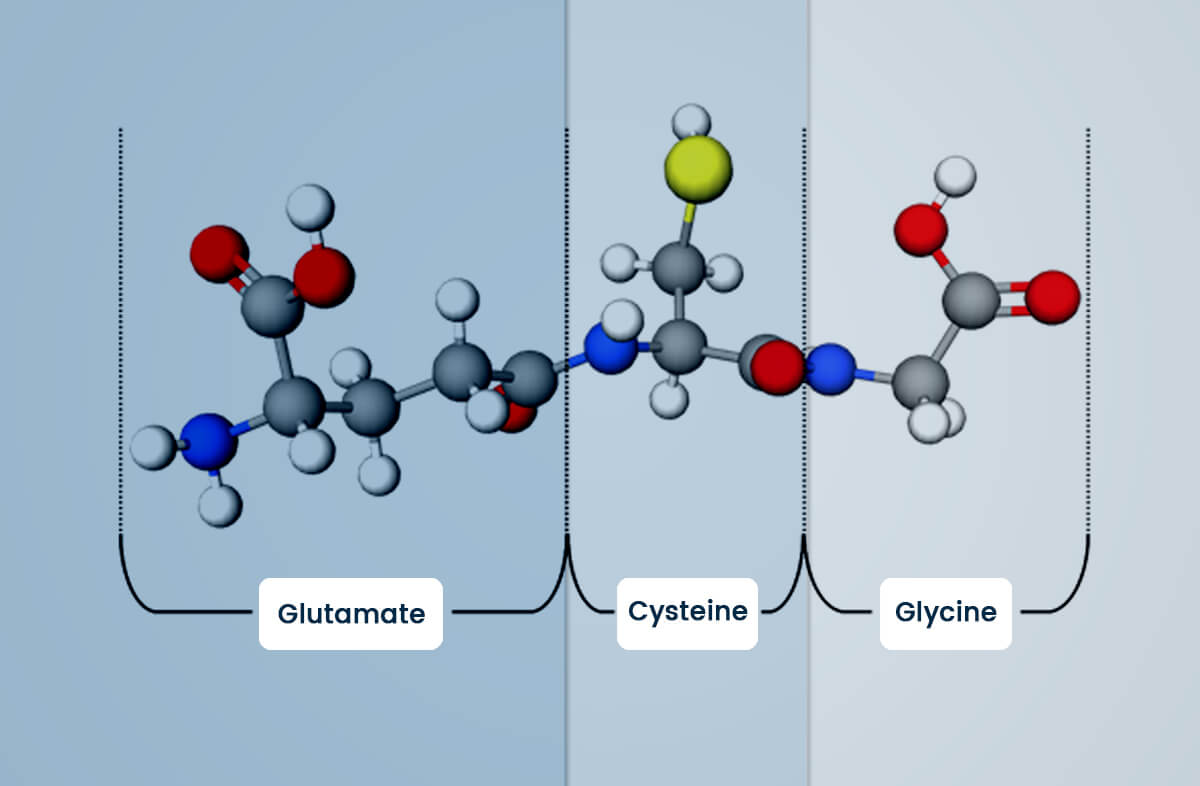Glutathione (GSH) is often termed the “master antioxidant”.
This tripeptide is found in all living forms in the environment, including bacteria, plants, and animals that use respiration and oxidative phosphorylation to obtain energy. Two enzymes work together in an intricately regulated system to synthesise glutathione in the cytoplasm of every cell. This mechanism enables glutathione to be maintained at various homeostatic levels in different tissue types, with the liver having the largest amounts due to its detoxification function.
The majority of essential physiological processes, such as cellular redox maintenance, free radical neutralisation, cell cycle regulation, proliferation, apoptosis, xenobiotic metabolism, and the recycling of other cellular antioxidants like vitamins C and E, depend heavily on glutathione.
Glutathione depletion and a corresponding increase in reactive oxygen species (ROS) during microbial infection is a key driver of the immune response and inflammation. Most chronic diseases are related to oxidative stress arising from the affected tissue losing the capacity to maintain glutathione at adequate healthy levels. The severity of many poisonings from drugs, alcohol, heavy metals and environmental toxins are related to an acute depletion of cellular glutathione. Progressive depletion of cellular glutathione is also used as a mechanism by many viruses to control their replication cycle during infection.
Read over 170,000 published medical papers on the benefits of Glutathione here.






